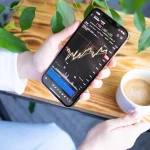Choosing the Right Forex Broker for Your Trading Journey
One of the most critical decisions that any Forex trader has to make is selecting the right Forex broker. With so many options available, it can be overwhelming to choose a broker that aligns with your trading style, preferences, and risk tolerance. In this article, we’ll walk you through the factors to consider when choosing a Forex broker, and how to ensure you pick the best one for your trading needs.

Why Choosing the Right Forex Broker is Crucial
The Forex broker you choose plays a significant role in your overall trading experience. They provide you with the tools, platforms, and access to the Forex market that you need to trade successfully. A good broker can make your trading experience smooth and profitable, while a bad one can lead to unnecessary risks and potential losses. It’s important to select a broker that offers a reliable platform, competitive spreads, and excellent customer support.
Factors to Consider When Choosing a Forex Broker
1. Regulation and Trustworthiness
The first and most important factor when choosing a Forex broker is regulation. A regulated broker adheres to strict financial standards and offers transparency, ensuring that your funds are secure and your trades are executed fairly. Regulatory bodies like the UK’s Financial Conduct Authority (FCA), the US Commodity Futures Trading Commission (CFTC), and the Australian Securities and Investments Commission (ASIC) set strict guidelines that brokers must follow.
When selecting a broker, make sure they are licensed and regulated by a reputable authority. This gives you peace of mind that the broker is trustworthy and follows ethical business practices.
2. Trading Platforms
Your broker’s trading platform is the most essential tool for executing trades. It should be user-friendly, fast, and reliable. The most commonly used platforms in Forex trading are MetaTrader 4 (MT4) and MetaTrader 5 (MT5), but many brokers also offer proprietary platforms. When choosing a broker, ensure that the platform suits your trading style and offers the necessary features like real-time charts, technical analysis tools, and automated trading capabilities.
Additionally, consider the availability of mobile apps for trading on the go. Many brokers now offer mobile platforms that allow you to monitor the markets and execute trades from your smartphone or tablet.
3. Spreads and Fees
Spreads are the difference between the buying and selling price of a currency pair, and they represent the cost of trading. Some brokers offer tight spreads, while others may have wider ones. Tight spreads are particularly important for active traders who make many trades, as they can reduce trading costs.
Along with spreads, brokers may charge commissions, swap fees (overnight fees), or other hidden fees. Be sure to carefully review the broker’s fee structure and calculate how much you’ll pay to trade on a particular platform.
4. Leverage and Margin
Leverage allows you to control a larger position in the market with a smaller amount of capital. While leverage can amplify profits, it can also increase your risk of losses. Different brokers offer varying levels of leverage, so it’s important to find one that matches your risk tolerance and trading strategy.
Be cautious with high leverage, as it can lead to significant losses if the market moves against you. Always ensure that you understand the risks associated with leverage and use it wisely.
5. Customer Support
Effective customer support is crucial in Forex trading, especially if you encounter technical issues, need assistance with deposits or withdrawals, or have other questions related to your account. A reliable broker should provide prompt, professional support via multiple channels, including live chat, phone, and email.
It’s also helpful to test the responsiveness of customer support before opening an account. Contact the support team with a question and see how quickly and efficiently they respond.
6. Account Types and Minimum Deposit
Different Forex brokers offer various account types with different features, such as minimum deposit requirements, spread types, and access to certain features. Some brokers offer demo accounts, which are useful for practicing without risking real money. Be sure to choose an account type that aligns with your capital and trading needs.
Additionally, check the minimum deposit requirement for opening an account. Some brokers have a low entry barrier with minimal deposits, while others may require a higher deposit to access more advanced features.
7. Education and Research Tools
Having access to quality educational resources and research tools can help you improve your trading skills and stay updated on market trends. Many brokers offer educational materials, including webinars, tutorials, eBooks, and market analysis reports. Research tools, such as economic calendars, technical analysis charts, and market news, can also help you make more informed trading decisions.
How to Evaluate a Forex Broker
1. Test the Platform with a Demo Account
Before committing real money, open a demo account with the broker to test their platform. A demo account allows you to practice trading without risking your capital. It also gives you the opportunity to evaluate the platform’s features and assess if they meet your trading needs.
2. Check Reviews and Testimonials
One of the best ways to evaluate a Forex broker is by reading reviews from other traders. Look for unbiased, reputable reviews on Forex forums, trading websites, and financial blogs. These reviews can provide valuable insights into the broker’s reliability, customer support, and overall trading experience.
3. Compare Brokers
It’s a good idea to compare multiple Forex brokers before making your decision. Look at factors such as regulation, spreads, trading platforms, fees, and leverage. By comparing brokers, you can choose the one that offers the best combination of features for your trading style.
Conclusion
Choosing the right Forex broker is essential for your trading success. By considering factors such as regulation, trading platforms, fees, leverage, customer support, and educational resources, you can select a broker that fits your needs and helps you achieve your trading goals. Remember to test the platform with a demo account, read reviews, and compare brokers to make the most informed decision. The right broker will provide the tools and support necessary to succeed in the fast-paced world of Forex trading.


